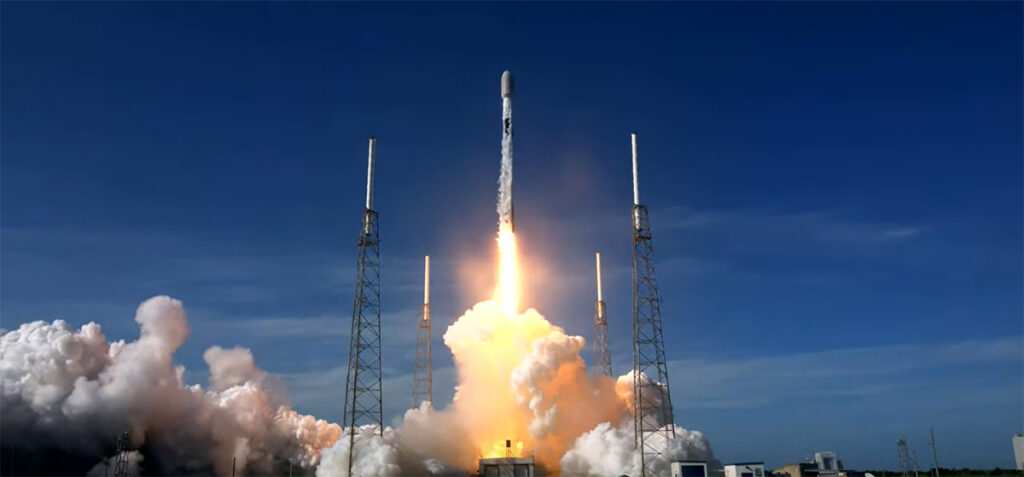SpaceX got back to expanding its Starlink satellite constellation with another batch launched from Cape Canaveral Space Force Station on Thursday.
This marks the 15th Starlink launch of the year, and 50th Starlink launch since the first operational deployment in 2019, with more than 2,700 satellites sent to orbit.

A Falcon 9 rocket with 53 of the 570-pound satellites on board lifted off from Space Launch Complex 40 during at 9:11 a.m. The booster on this flight is the second in the company’s fleet to make a record 13th flight, having previously been used on Crew Demo-2, ANASIS-II, CRS-21, Transporter-1, Transporter-3, and seven Starlink missions. The company was able to land it on its droneship Just Read the Instructions in the Atlantic Ocean.
The launch marks SpaceX’s 28th launch in 27 weeks for 2022, on pace to surpass 52 for the year. To date, SpaceX has had 166 successful launches and managed the recovery of 128 of its boosters among both Falcon 9 and Falcon Heavy rockets.
Not all Starlinks launched have become operational with about 2,419 in working order, according to statistics tracked by astronomer Jonathan McDowell.
The Starlinks orbit at around 341 miles altitude. SpaceX has approval for 4,408 operational satellites, but is seeking Federal Communications Commission approval to increase its presence to about 30,000 with future launches on board its in-the-works Starship rocket.
SpaceX also has a launch from KSC slated for next week for the CRS-25 mission to resupply the International Space Station, flying no earlier than July 14. That flight has been delayed more than a month because of teams detecting hydrazine vapor, and the decision to replace the vehicles parachutes.
___
© 2022 Orlando Sentinel Distributed by Tribune Content Agency, LLC



